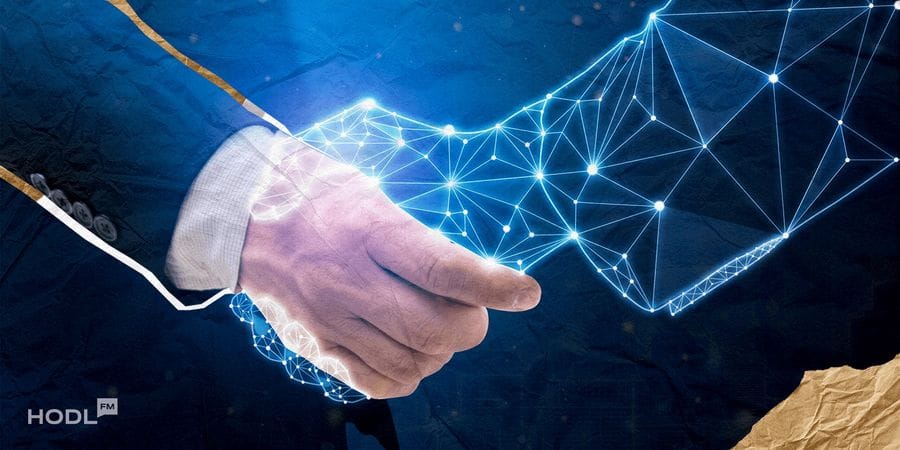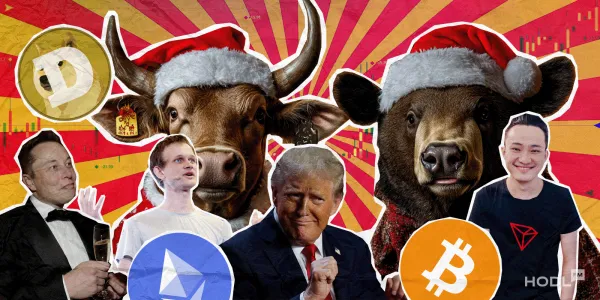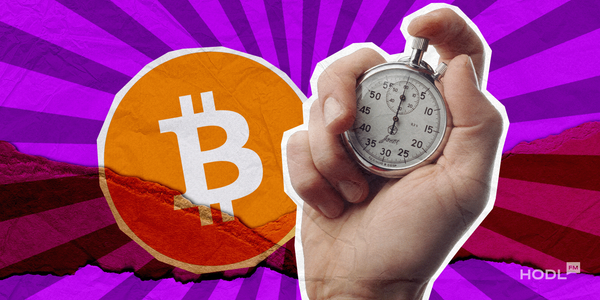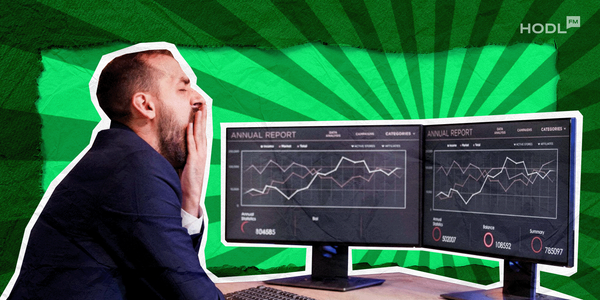In the dynamic world of finance and trading, decentralized marketplaces take center stage. Imagine a vibrant financial arena where buyers and sellers connect directly, leaving behind the traditional central exchanges and intermediaries. In this space, technology plays a crucial role, facilitating smooth peer-to-peer transactions. These markets are intricately linked with the groundbreaking potential of blockchain technology and cryptocurrencies.
In this article, we will delve into the very essence of decentralized marketplaces, uncovering their definition, operating principles, strengths, and hurdles. Additionally, we’ll draw comparisons between these decentralized platforms and their traditional counterparts. To make things more real, we will examine some actual decentralized marketplaces in action. And after that, we’ll explore how this new trend could affect the future of commerce.
Read more: Centralized Exchanges: The DeFi Gateways We Never Knew We Needed

The Essence of Decentralization
Decentralization, my friends, refers to a fundamental shift away from centralized authorities and intermediaries. Intermediaries in markets traditionally serve as trusted third wheels who make sure transactions are legit and safe, often levying fees for their services. These middlemen can be anyone from the big-shot central authorities to fancy institutions or massive corporations.

Decentralization is the complete opposite of those centralized systems that like to boss everyone around from a single central point. Instead, they distribute control and decision-making across a network of participants. It comes with some sweet perks, like security and trust. Since there is no single vulnerable point, decentralized systems are more resistant to attacks and hacking attempts.
The Dawn of Decentralized Marketplaces
The dawn of decentralized marketplaces is closely tied to the evolution of peer-to-peer trading and the Internet. Flashback to the late ’90s and early 2000s, when online platforms like eBay and Craigslist made their grand entrance. But even there, they couldn’t fully shake off the need for those central authority figures.

In 2008, blockchain technology burst onto the scene. Blockchain’s decentralized, trustless nature laid the foundation for creating marketplaces that could operate without relying on central authorities. In 2011, the Silk Road made its grand entrance as one of the pioneers in decentralized marketplaces. People were able to pay with Bitcoins, and the world of online trading was never the same again.
Real-World Use Cases:
- Uniswap – a decentralized crypto exchange without middlemen, using an automated market maker (AMM) system.
- OpenBazaar – a marketplace with no transaction fees for buying and selling goods and services with cryptocurrency.
- Origin Protocol – a decentralized platform enabling users to build their unique marketplaces, complete with custom tokens and smart contract capabilities.
- Bisq – a decentralized exchange enabling to trade Bitcoin directly between buyers and sellers.
According to DappRadar data, there are now about 650 active decentralized marketplaces. All thanks to the red-hot trend of blockchain technology.
A Beginner’s Guide: How Decentralized Marketplaces Work
Let’s outline the operating principles on which decentralized marketplaces are based:
1. Blockchain technology
At the core of decentralized marketplaces lies blockchain technology. Picture it like a digital ledger that keeps track of every transaction across the network of computers. The beauty? It’s decentralized, meaning there’s no single responsible body. Instead, transactions are securely and transparently recorded in a way that is virtually tamper-proof.
2. Smart contracts
Smart contracts are the secret sauce of decentralized marketplaces. These are self-executing agreements with predefined rules, coded into the blockchain. When buyers and sellers agree on terms, these contracts automatically execute transactions once those terms are met.
3. User privacy
Privacy is a top priority in decentralized marketplaces. Users often operate under pseudonyms represented by cryptographic addresses. This protects personal information and provides a level of privacy in blockchain that traditional online platforms may lack.
4. Trust Mechanisms
Trust is a big deal in crypto, and decentralized marketplaces have it covered. Proof of Work (PoW) and Proof of Stake (PoS) are consensus algorithms that ensure everyone on the network agrees on the validity of transactions. Reputation systems and user reviews also help build trust mechanisms in blockchain among participants.
Advantages of Decentralized Marketplaces
The debate about decentralization vs. centralization is permanent in the world of commerce. However, decentralized marketplaces offer distinct advantages over their counterparts.
- Elimination of middlemen and associated fees
Say goodbye to middlemen. Decentralized marketplaces cut out the need for intermediaries. No more hefty fees for transaction processing, escrow services, or other middleman costs. Your hard-earned money stays where it belongs – in your pocket.
- Increased security and transparency
Decentralized marketplaces excel in this department. Transactions are recorded on a blockchain, making them highly secure and virtually immune to hacking. Transparency in cryptocurrency is another win – every operation is visible on the public ledger, ensuring honesty and trustless transactions.
- Global accessibility and inclusivity
With decentralized marketplaces, geography is no longer a barrier. Anyone with an internet connection can participate, making it truly global. This inclusivity empowers individuals worldwide, including those without access to traditional financial systems.

Challenges, Concerns, and Future Trends
Regulatory challenges in blockchain
Governments and authorities are still grappling with how to regulate decentralized marketplaces effectively. Legal considerations, such as enforcing smart contracts in case of disputes and ensuring compliance with local laws, remain a puzzle that needs solving.
Potential for fraudulent activities
While blockchain technology enhances security, it doesn’t eliminate the possibility of fraudulent activities entirely. Scams, fake products, and other illicit activities can still occur.
Users should be cautious and perform thorough due diligence.
Predictions for the future of decentralized marketplaces
Looking ahead, decentralized marketplaces are expected to flourish despite these challenges. As blockchain technology matures and gains broader acceptance, decentralized marketplaces will likely see continued growth and innovation. Emerging trends may include:
- DeFi Integration: Decentralized finance (DeFi) slipping into decentralized marketplace ecosystems effortlessly, making lending, borrowing, and all sorts of financial activities a breeze. They’re like a match made in blockchain heaven.
- Decentralized E-commerce Platforms: E-commerce platforms built on blockchain technology can bring lower fees, next-level security, and crystal-clear transparency. Shopping just got a serious upgrade.
- NFTs and Digital Collectibles: NFTs aren’t slowing down anytime soon in these decentralized markets. Get ready for a trade of digital collectibles, art, virtual real estate, and who knows what else?
Conclusion
Decentralized marketplaces have emerged as a beacon of promise, offering a transformative alternative to their centralized counterparts. As we bid adieu to those meddling middlemen, we usher in an era of control, privacy, security, and transparency for users.
More Info:
- Coins and Tokens: What’s the Difference?
- DeFi Traders vs. Hackers: Lost Battle
- Decentralized Finance (DeFi): Revolutionizing Traditional Financial Systems
The rise of blockchain technology has paved a glittering way for these marketplaces to flourish autonomously. Decentralized marketplaces are no ordinary players; they challenge our traditional notions of trade and commerce. We wholeheartedly invite you to set sail into this constantly changing landscape. Becoming a part of decentralized marketplaces ensures you’re not just a spectator but a hero shaping the future of blockchain markets.
Disclaimer: All materials on this site are for informational purposes only. None of the material should be interpreted as investment advice. Please note that despite the nature of much of the material created and hosted on this website, HODL.FM is not a financial reference resource and the opinions of authors and other contributors are their own and should not be taken as financial advice. If you require advice of this sort, HODL.FM strongly recommends contacting a qualified industry professional.




